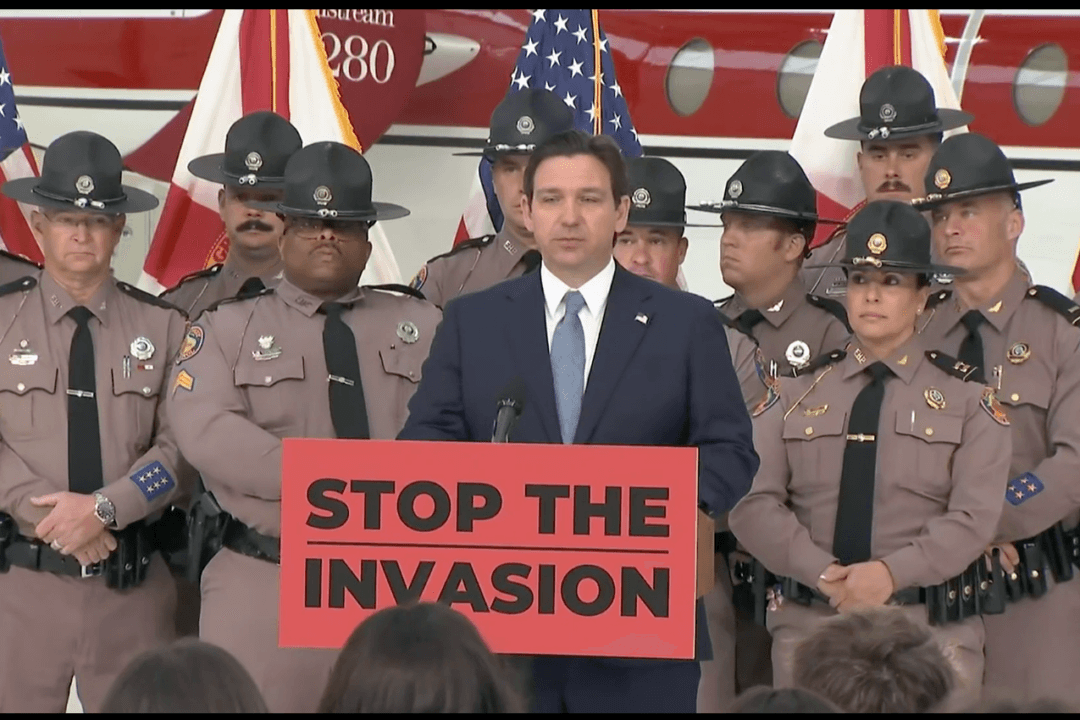Of the nearly 400,000 immigrants who have been flown into the United States under the Biden administration’s parole programs, more than 325,000 went to Florida, says a new report, and Florida Gov. Ron DeSantis is calling the action unconstitutional.
“We know the program’s going on. We’re suing over it,” Mr. DeSantis said at an April 3 press conference in Polk City, Florida. “It’s illegal and not constitutional.”





